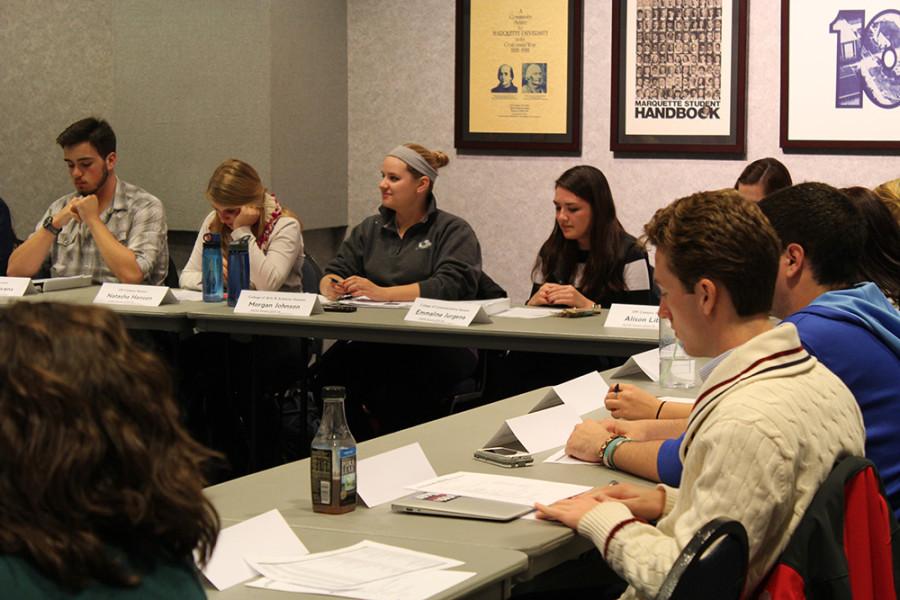 Last year, I came to Marquette convinced I would study international affairs, graduate with a perfect grade point average and change the world in record time. I challenged my professors’ viewpoints the second they started teaching and took as many political science courses I could fit in.
Last year, I came to Marquette convinced I would study international affairs, graduate with a perfect grade point average and change the world in record time. I challenged my professors’ viewpoints the second they started teaching and took as many political science courses I could fit in.
I was the eccentric character who walked across campus wearing one of many cat shirts while sporting bright yellow sneakers. I joined two student organizations in my first week and held two jobs my freshmen year. I made great friends, enjoyed my coursework, engaged in every class and talked to professors outside of class often.
But not a single course I took my freshmen year will apply to my new major, and I’m not the same person I was a year ago.
I saw Marquette as the means to a career path my freshmen year, but that view is too narrow. Going to college for four years to land a job is a common narrative students put forth, but that description fixates on the auxiliary benefits. College is a hub of personal, social, spiritual and professional opportunities; at the center of these opportunities is self-knowledge.
Students look to become independent, mature individuals and to jump start their professional lives in college. Determining what to do in life, what inspires passion, what is tolerable and what balance of work and life is preferable for the individual can only be learned through reflection and self-analysis.
These are the tools students have to determine personal goals and interests, but there is perhaps no greater opportunity to test those interests and goals than their time in college. Students’ interests in academic work can reflect a predilection for the content of the course, and lecture styles give insight to the environment in which students thrive. Student organizations are often the first opportunity they have to apply their interests, and internships provide the first chance to experience a professional environment.
Amongst every project, paper, job and duty in college is an opportunity to test the desirability and compatibility of certain activities. Campus involvement forces students to prioritize and organize their time, and at no other time in life will there be so many resources — social, academic and professional — available to exploit.
I came to college with exaggerated views on what I would do and how I would do it. But the continual reassessment of what I want out of the Marquette experience has driven me to pursue diverse coursework and contact more people from the religious and academic spheres on campus. Finding and maintaining a successful career after school is certainly a goal of the Marquette experience, but self-knowledge enhances future prospects.




